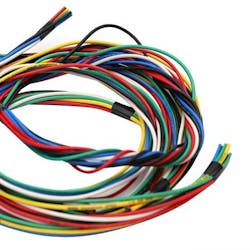Six experts give tips for how to keep cables labeled and easy to identify. As the Industrial Internet of Things (IIoT) continues to gain mindshare and acceptance, the roles of the cables, connectors and wires that move the data become more important.
Any suggestions on maintenance strategies for cable identification by technicians?
An example would be to use blue-color Ethernet cable between two controllers; teal-color Ethernet cables for fieldbus/network communication between control devices on a machine; and red-color jacketed cables for safety communication.
ALSO READ: Don't let poor wire and cable decisions slow down your next project
Mike Bacidore is the editor in chief for Control Design magazine. He is an award-winning columnist, earning a Gold Regional Award and a Silver National Award from the American Society of Business Publication Editors. Email him at [email protected].
About the Author
Mike Bacidore
Editor in Chief
Mike Bacidore is chief editor of Control Design and has been an integral part of the Endeavor Business Media editorial team since 2007. Previously, he was editorial director at Hughes Communications and a portfolio manager of the human resources and labor law areas at Wolters Kluwer. Bacidore holds a BA from the University of Illinois and an MBA from Lake Forest Graduate School of Management. He is an award-winning columnist, earning multiple regional and national awards from the American Society of Business Publication Editors. He may be reached at [email protected]









